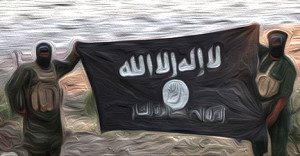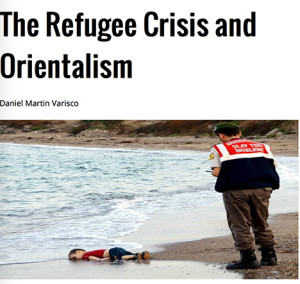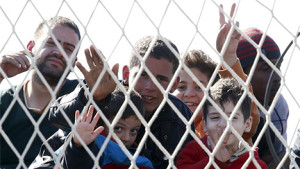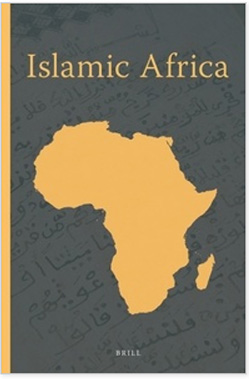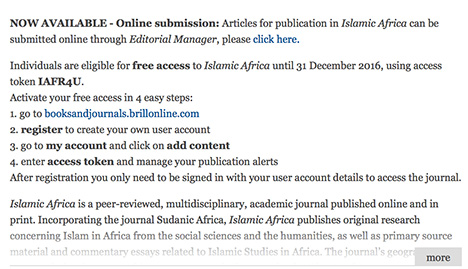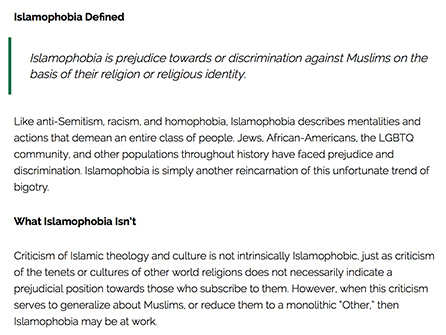“WICHITA, KS – MARCH 5: A group of Muslim students take selfies before Republican presidential candidate Donald Trump made a speech at a campaign rally on March 5, 2016 in Wichita, Kansas. During the speech, after they voiced some protests, they were removed from the convention center. J Pat Carter/Getty Images/AFP”
Middle East Eye, March 22, 2016
Glaringly absent from American news media are opinion polls showing that Muslims are no more likely to accept violence than other groups
No sooner had the Belgian attacks happened, commentators on social media began linking the terror acts to the Islamic faith, with the hashtag #StopIslam trending on Twitter.
Empirical data show that Islamophobia, defined by Professor Todd Green as “an irrational fear, hostility or hatred of Muslims or Islam†is on the rise in American society.
Many Americans are increasingly scared of Muslims, and, given rising anti-Muslim hate crimes – the FBI says anti-Muslim hate crimes have increased fivefold since the September 11 terror attacks – many American Muslims are also growing more scared for their personal safety.
Given attacks by Muslim extremists – including the 11 September 2011 attacks – some fear of Muslim terrorists is obviously warranted. But much of Islamophobia borders on the absurd. Islamophobic statements, sentiments and policies tend toward exaggeration and overgeneralisation, and are divorced from empirical realities.
Recent statements made by Republican presidential frontrunner Donald Trump offer useful cases-in-point. In a recent CNN interview, Trump stated that “Islam hates us.†Trump also claimed last week that 27 percent of Muslims are radicals who are “very militantâ€.
No one knows where or how Trump’s campaign team came up with the 27 percent figure. He may have consulted with noted Islamophobe Brigitte Gabriel, who famously claimed that Muslim radicals represent “between 15 to 25 percent†of the global Muslim population. “You’re looking at 180 million to 300 million people dedicated to the destruction of Western civilisation,†Gabriel asserted. Prominent media personality Glenn Beck, meanwhile, has claimed that 10 percent of the world’s Muslims are terrorists.
So-called Islam experts Robert Spencer, Sam Harris, Pamela Geller and Ayan Hirsi Ali have been even more direct. All have claimed that Islam is a religion bent on violence. Spencer argued that “Traditional Islam is not moderate or peaceful†and that late al-Qaeda leader Osama Bin Laden was acting in ways that were “consistent with traditional understanding of the Qur’an.†Harris has said that “we are at war with Islam…we are absolutely at war with the vision of life that is prescribed to all Muslims in the Koran.†Geller argued that “the Quran is war propaganda†and Ali said that the West’s war on terror should not only be directed at radical Islam, but, rather, “Islam, periodâ€.
Statements like these are reckless, and may help explain why more and more Americans believe that Islam itself is the problem, not just the extreme, minority interpretations offered up by the so-called Islamic State (IS) and al-Qaeda. A 2011 survey by the Public Religion Research Institute showed that 55 percent of Republicans and 40 percent of Democrats believed that Muslim extremists who commit violence against civilians are acting consistently with their faith. A 2015 Brookings survey, meanwhile, found that 61 percent of Americans hold unfavourable opinions of Islam.
Given all of this, it is perhaps unsurprising that many Americans support Trump’s November proposal for “a complete shutdown of Muslims entering the United Statesâ€. A strong majority of Republicans support Trump’s “temporary†Muslim ban proposal, including 78 percent of Republicans in Alabama, 76 percent in Arkansas, 76 percent in Mississippi and 74 percent in South Carolina.
Liberal Islamophobia
But it would be wrong to view Islamophobia as a strictly conservative phenomenon. Polling data indicate that 49 percent of Democrats hold unfavourable views of Islam. Also, Brookings Institution scholar Shadi Hamid has argued that US President Barack Obama, a Democrat, holds views that amount to “Islamic exceptionalismâ€. Hamid argues that Obama’s statements about Muslims suggest that he is “frustrated by Islam†and that he has bought into Samuel Huntington’s “clash of civilizations†thesis.
Moreover, American news media, including liberal outlets, have done a poor job contextualising stories about Muslims and Islam. A growing body of empirical research into American news media coverage of Islam reveals deeply problematic patterns – negative, stereotypical portrayals, almost no Muslim sources, and few mention of Muslims or Islam in the context of positive news. That American news outlets apply the “terrorism†description almost exclusively to Muslim-perpetrated violence cannot be lost on anyone paying attention.
Of all the recent research on Islamophobia, Professor Chris Bail’s work might be the most instructive – and also the most damning for American news outlets. Bail uses computerized content analysis to show that Islamophobic statements – released by a small group of anti-Muslim fringe groups – are much more likely to make their way into the American news cycle than statements made by Muslim advocacy groups denouncing terrorism. Bail’s research shows that while denunciations of terrorism by Muslim groups generally go unreported, Islamophobic statements drive news narratives.
Glaringly absent from American news media are opinion polls showing that Muslims are no more likely to accept violence than other groups. For instance, a 2011 Gallup World Violence poll showed that Muslims were just as likely as non-Muslims to reject vigilante acts of violence against civilians.
In America, polling data point even more sharply in this direction. A 2011 Gallup poll found that American Muslims were the least likely of all polled American religious groups to accept vigilante violence against civilians. In all, 26 percent of American Protestants, 27 percent of Catholics, 22 percent of Jews, 19 percent of Mormons, 23 percent of atheists, but just 11 percent percent of Muslims said that it is “sometimes justified†for an “individual person or a small group of persons to target and kill civiliansâ€.
As for actual terrorists, the CIA estimates that there are around 30,000 Muslim jihadists in the entire world. A Kurdish leader has suggested that the CIA underestimates the jihadist threat, and claims that the total number is closer to 200,000. Even assuming the larger figure, jihadists represent a grand total of 0.01 percent of the world’s 1.8 billion Muslims.
American entertainment media have been part of the problem. Media scholar Jack Shaheen carried out a content analysis of more than 900 Hollywood movies featuring Arab or Muslim characters. Shaheen found Muslim characters are almost never cast in positive or neutral roles. The overwhelming majority of films that feature Arab or Muslim characters cast them as enemies, terrorists, violent, savage or backwards.
No one would suggest that American media and political discourse should completely eliminate mentions of Muslim-perpetrated terrorism. Al-Qaeda and ISIS are real threats and some attention, concern and fear are warranted. But, compared to other threats of violence, Muslim terrorism garners exaggerated attention in American news and politics.
In the 14 years since 1 January 2002, Muslim terrorists have killed 45 Americans in the United States, a smaller number than right-wing conservative terrorists have killed during the same time period. Also, since the start of 2002, there have been more than 200,000 firearm-related homicides in the United States, and hundreds of mass shooting.
More realistic, proportionate presentations would greatly improve American political life. However, given the extent to which the Islamophobia industry is funded, people shouldn’t hold their breath waiting for fairer, less sensational presentations.
– Dr Mohamad Elmasry is an Assistant Professor in the Department of Communications at the University of North Alabama.
The views expressed in this article belong to the author and do not necessarily reflect the editorial policy of Middle East Eye.
.


